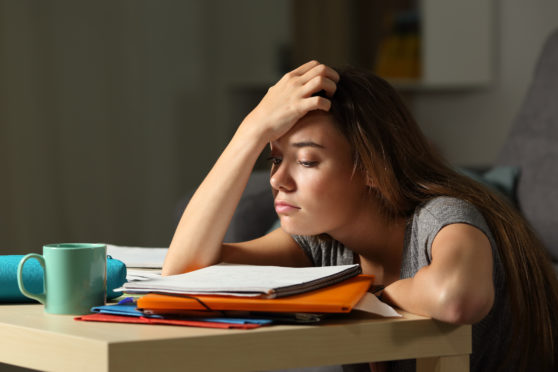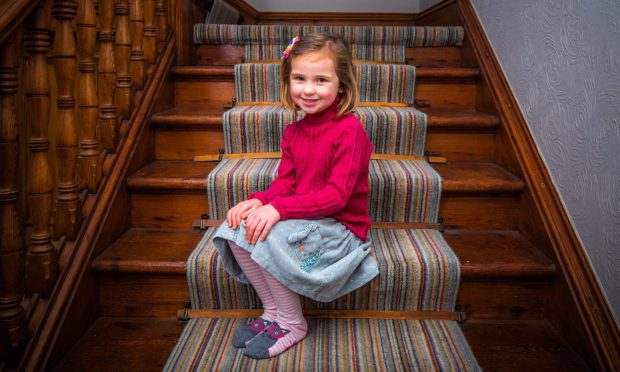More than half of 15 to 17 year-olds found it “difficult” to adapt to doing schoolwork at home during lockdown, a survey has revealed.
The TeenCovidLife survey, which was was carried out by the Generation Scotland team at the University of Edinburgh between May 22 and July 5, surveyed more than 5,000 young people aged between 12 and 17 years of age across Scotland.
Pupils from 283 schools across the 32 local authorities responded to the survey, which probed a range of topics including the impact Covid-19 had on their schooling and emotional wellbeing.
On the topic of home learning, the results showed that 55% of male and 60% of females aged between 15 and 17 yeas-old reported either they found it “quite difficult” or “very difficult” to adapt to doing schoolwork at home.
“The alarming results of this study should be right at the forefront of the government’s mind throughout the next few months.”
Jo Bisset, organiser for UsForThem Scotland
Similarly, 44% of male and 50% of female respondents aged between 12 and 14 years also felt it it was either “quite difficult” or “very difficult” to be schooled at home.
Just 9.7% of males 6.1% females aged between 12 and 14 found it “very easy” to adapt to home learning.
These numbers were even lower for those aged between 15 and 17 years, with 8.9% of males and 5.6% of females in this category saying they found home learning “very easy”.
The TeenCovidLife also revealed that girls were more likely to feel under “a lot” of stress from schoolwork during the lockdown period compared to their male peers.
The results showed that 40.8% of girls aged between 15 and 17 and 36.8% of those aged between 12 and 14 felt this way.
In comparison, 29% of males aged between 15 and 17 and 26.5% of those in the 12 to 14 age group felt under “a lot” of pressure due to schoolwork.
Parent concerns
A further survey carried out by the parent council group Connect, also probed the impact of home learning during lockdown.
There was more than 7,000 responses from all 32 local authorities – with parents in Fife accounting for approximately 7% of submissions.
The results of the survey, which ran from May 27 to June 30, showed that 47% of parents believed that there would be some negative effects from part-time learning.
Of the negative impacts parents were worried about, the most common was about their child’s education with 70% of respondents citing this as a concern.
This was followed by the impact on their child’s friendships and social confidence, with 63% of respondents citing this as a worry.
Exams crisis led to nearly a quarter of parents considering private schooling, Courier poll finds
Parents with children of secondary school age or above were more likely to believe part-time schooling would have a potentially negative impact on education, with 75% of them thinking this.
This compares to 71% of parents with a primary school aged child and 65% of pre-school parents.
A higher proportion of parents of older age groups showed concern about school work and lost learning, exams and lack of contact from school.
“Massive damage to children’s education”
Parent group UsForThem, who had called for a full time return to school earlier this year, claimed the results were “alarming”.
Jo Bisset, organiser for UsForThem Scotland, said: “Home-learning placed immense pressure on families and caused massive damage to children’s education.
“Now this study shows the pupils themselves found it extremely difficult.
“The alarming results of this study should be right at the forefront of the government’s mind throughout the next few months.
“Schools must stay open as normal, even if other parts of society are closing down.
“We cannot risk causing more harm to the wellbeing and prospects of our young people.”










